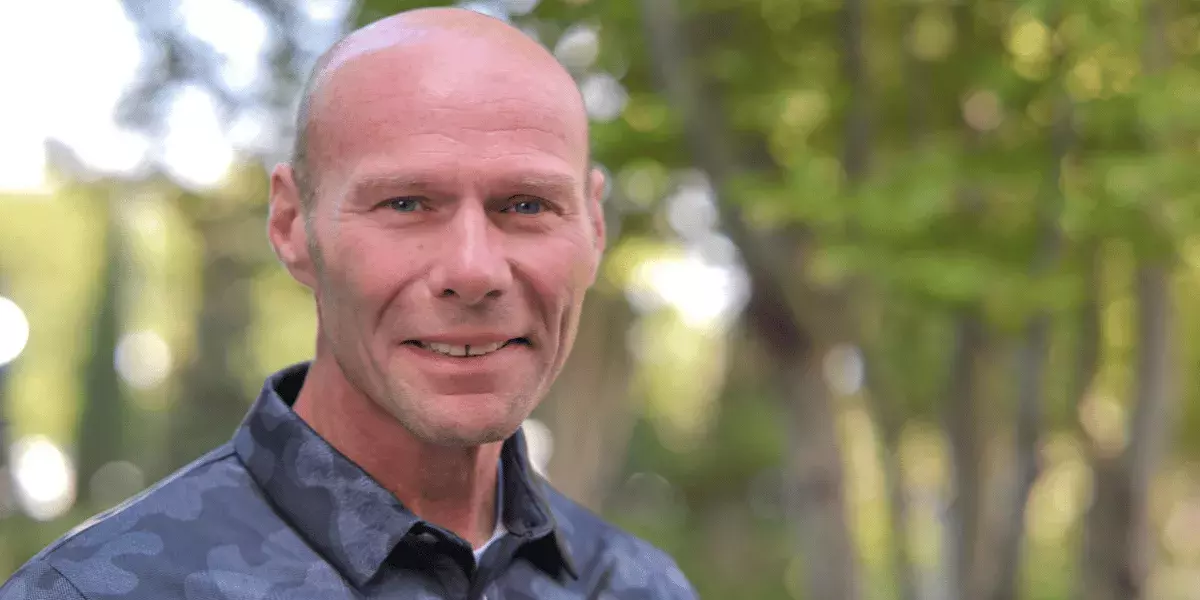
Cutting-edge procedure prevents possible cardiac crisis
Alan Simpson is enjoying life these days – spending time with family at Lake Blalock and taking his dog, Meda, on walks along local trails.
He said he considers himself “lucky.”
Early detection of two heart defects gave Simpson the opportunity to undergo state-of-the-art treatment that prevented a health crisis.
Several years ago, Simpson’s family member survived a heart attack. “It made me wonder if I might have any issues,” Simpson said.
Tests revealed that he had blockage in one of his main arteries as well as a condition known as mitral valve prolapse, which causes blood to leak from the heart. Mitral valve prolapse can lead to shortness of breath, lung congestion, and fatigue.
Cardiologists at Spartanburg Regional Healthcare System’s Heart Center treated Simpson with two minimally invasive procedures. First, they placed a stent in his blocked artery, avoiding the need for open-heart surgery.
Next, Simpson underwent a relatively new procedure called MitraClip.
The Heart Center has been offering MitraClip since 2017. The medical team uses a catheter to implant a clip into the heart to hold the mitral valve in place and prevent bleeding.
Kim Valenti, who serves as coordinator of the structural heart program at Spartanburg Regional, said that minimally invasive procedures like the ones Simpson underwent have transformed cardiac care options for many patients.
In the past, a patient with mitral valve prolapse would need open-heart surgery, or they would slowly develop and suffer from heart failure. Not all patients are strong enough to undergo open-heart surgery.
“With MitraClip, patients usually spend one night in the hospital,” Valenti said. “They can return to their normal activity in about two weeks and get back to enjoying life."
Valenti said Simpson is one of about 100 patients who have undergone the MitraClip procedure.
Simpson said he is grateful the Heart Center invests in cutting-edge technology and training – and for the caregivers who helped to ensure his good health.
“They made me feel like I was in good hands. I would recommend them to anybody,” he said.
Growing field of cardiac care
The Spartanburg Regional Foundation is proud to support world-class care at the Spartanburg Regional Heart Center. The heart center’s structural heart program treats serious problems inside the heart through a variety of minimally invasive, state-of-the-art procedures. This growing field of cardiac care includes:
-
Transcatheter Valve Replacement (TAVR) for aortic valve stenosis. TAVR is a catheter-based technology that delivers and positions a replacement aortic valve while the heart is still beating.
-
Transcatheter Mitral Valve Clip Insertion (MitraClip) for mitral valve regurgitation, is a catheter-based technology that uses a small clip attached to the mitral valve to treat degenerative mitral valve leakage. MitraClip® allows the mitral valve to close more completely, helping to restore normal blood flow through the heart.
-
Transcatheter Implant to Accomplish Left Atrial Appendage Occlusion (WATCHMAN) for atrial fibrillation that is not caused by a heart valve problem. Watchman is a one-time, catheter-based intervention that offers certain patients living with atrial fibrillation the opportunity to reduce their stroke risk and eliminate blood-thinning medication from their daily routine. This medically advanced technology uses a permanent implant device that can block blood flow from going into the area of the heart, the left atrial appendage. This area is where blood is most likely to pool during episodes of atrial fibrillation, and eventually clot.












